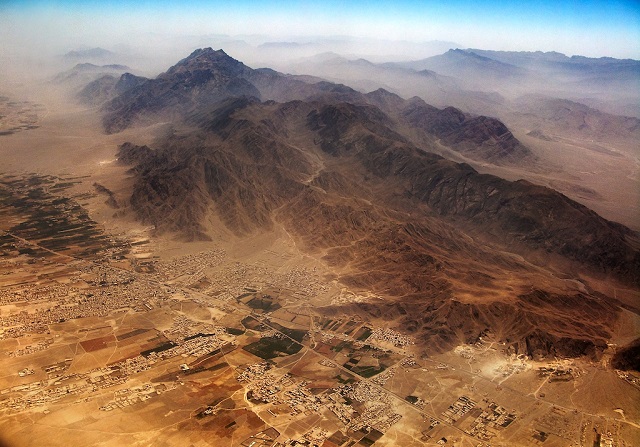
Terrorists have
again struck in Balochistan, Pakistan’s largest but least populated province. The attack confirmed that this resource-rich province remains Pakistan’s weakest security link against militants and separatists. And what’s more, it could threaten
China’s massive US$46 billion investment in the multi-faceted infrastructure venture known as the China Pakistan Economic Corridor (CPEC).
On Monday 8 August,
a suicide bomber, who had strapped eight kilograms of explosives packed with ball bearings and shrapnel on his body, blew himself up at a Pakistani hospital in Quetta killing at least 70 people and wounding over 100 others. Given the size of the blast and the horrific nature of the wounds inflicted, it’s likely that the number of fatalities will increase. This terrorist attack was
claimed by Jamaat-ur-Ahrar, a faction of the Pakistani Taliban. That
same faction also claimed the terrorist attack in Lahore on Easter Sunday which killed over 70 people, many of them women and children.
The suicide bomber executed his terrorist act for maximum impact by detonating himself where some 100 lawyers had gathered to mourn the shooting earlier in the day of Bilal Anwar Kasi, the president of the Balochistan Bar Association.
Jamaat-ur-Ahrar also claimed responsibility for Kasi’s murder. With most of the victims being lawyers, this terrorist act is a virtual decapitation of the legal fraternity of Balochistan.
However, confusing the situation further, several hours after Jamaat-ur-Ahrar claimed responsibility for Kasi’s assassination and the bombing, the
Islamic State (IS) also took credit for the suicide bombing. If IS is indeed responsible this would be a major development, confirming that IS does indeed have a foothold in Pakistan. The Pakistan government regularly
refutes the claims that IS is present in Pakistan. An IS presence in Pakistan would be bad news for the region given that
IS has a growing presence in neighbouring Afghanistan, as confirmed recently by General John W Nicholson, commander of US and NATO forces in Afghanistan. Moreover,
according to General Nicholson, 70% of IS in Afghanistan are former Pakistani Taliban fighters who have defected to IS.
The attack has had a particularly high shock factor because for the last three years, Balochistan has been relatively quiet on the security front. This latest incident reminds everyone that Balochistan remains very ‘soft’ when it comes to dealing with violence.
Balochistan is deeply afflicted with three types of violence. Sectarian violence between Sunni and Shiite Muslims is a common occurrence.
The last big attack against the Shiite Hazaras was in January 2013 when over 80 people were killed in a suicide bombing. Second,
Balochistan is home to a number of separatist insurgency groups which are demanding independence for the province and a greater share of the income from the development of its natural resources. Those groups sabotage gas and oil pipelines that traverse the province on a regular basis. They also target migrants from other provinces, especially Punjabis.
The third violent group are jihadists who target the state and members of civil society, such as lawyers, teachers and public servants. This last group, generally affiliated with the Pakistani Taliban—known as the Tehrik-i-Taliban Pakistan (TTP)—demands the imposition of Sharia law throughout Pakistan. The TTP works closely with the Afghan Taliban whose leadership resides in Quetta. It’s interesting to note that the leader of the Afghan Taliban, Mullah Mansour, was
killed in a US drone attack in Baluchistan just across the border from Iran in May.
Pakistani Prime Minister Nawaz
Sharif strongly condemned the two terrorist acts and directed the provincial government to arrest the culprits—something much easier said than done. He
went on to stress that ‘no one will be allowed to disturb the peace of the province’. While the Prime Minister certainly wanted to comfort the local Baluch population in this moment of stress, his primary concern was to reassure China. Accordingly, he didn’t mince words when
he said that there’s ‘no doubt in my mind that enemies of Pakistan are after CPEC’, and ‘the Army under the leadership of the Chief of Army Staff was doing a commendable job to neutralize the security threat toward CPEC’.
The Prime Minister has staked his premiership on the successful implementation of CPEC, which, if fully completed, would bring great benefits to Pakistan. Included in CPEC is the development in Balochistan of the Indian Ocean port of Gwadar, the linking of a gas pipeline with Iran, and the building of roads and railroads heading northwards to China. As all of those massive infrastructure projects are located in trouble-prone Balochistan, it’s no wonder the Chinese may be a tad nervous about the security situation in that critical province.
Although
Pakistan will dedicate a full army division to the protection of Chinese personnel working on the various CPEC projects, Chinese leaders have reason to be concerned that, after two years of intense anti-insurgency and anti-terrorist army operations against the TTP and their fellow ideological travellers, terrorists are still able to execute high-impact attacks in Balochistan and elsewhere in the country.
Still, while the Chinese may be wary, they aren’t about to abandon CPEC—the long-term strategic benefits for China are simply too great to do so. On the other hand, Prime Minister Sharif’s political standing at home—which is already weak due to a number of other domestic factors such as corruption, high youth unemployment, energy shortage, poor tax collection system, a decrepit educational system—will have taken a serious hit after this latest terrorist act. The odds are that, politically, he may not be around for much longer, with or without CPEC. Balochistan is his Achilles heel.
 Print This Post
Print This Post